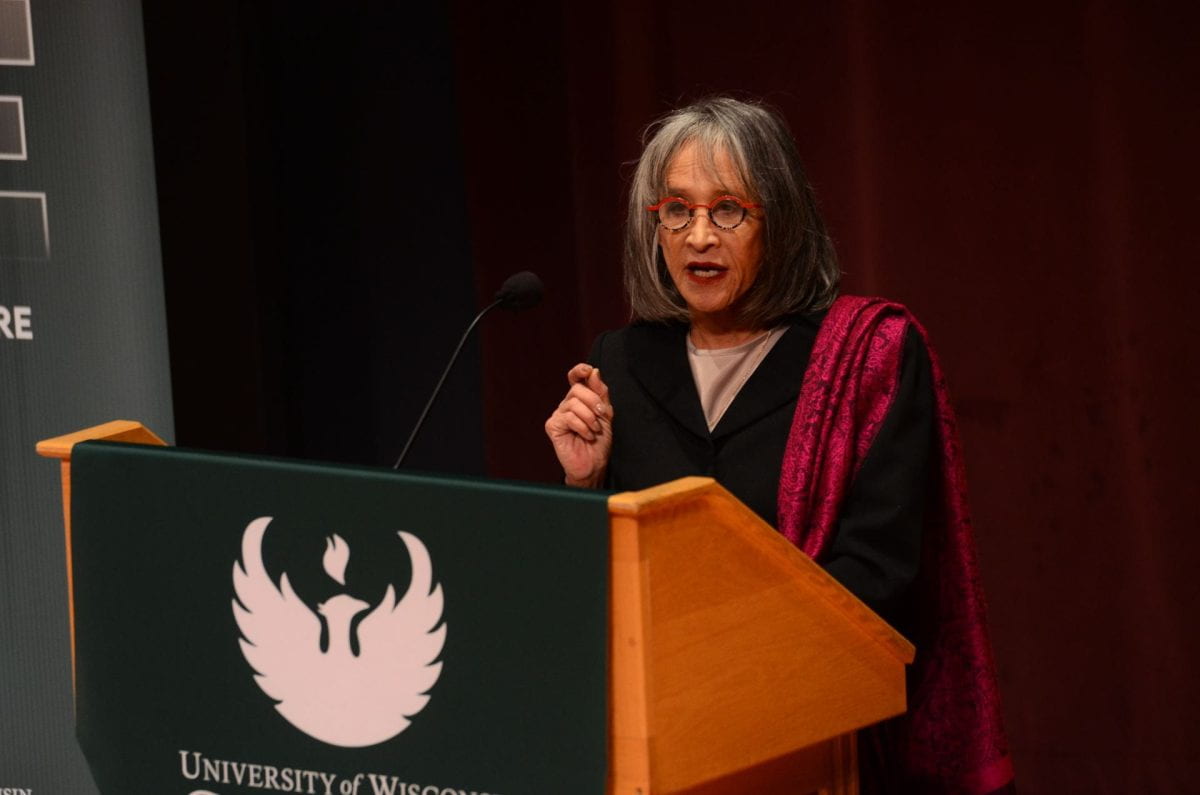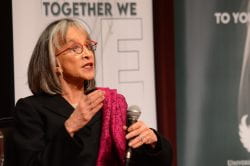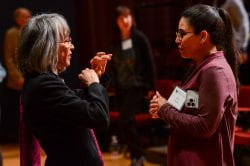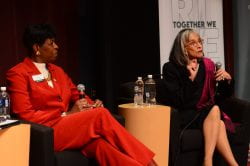State Latinx leader Andrea-Teresa “Tess” Arenas speaks to ‘Solidarity’ at events at the UW-Green Bay campus


Andrea-Teresa “Tess” Arenas, who founded the Wisconsin Latinx History Collective, speaks at UW-Green Bay on Mar. 19, 2024.
Founder of the Wisconsin Latinx History Collective and author Andrea-Teresa “Tess” Arenas, spoke to a number of different audiences including members of the community, UW-Green Bay students and faculty and staff over two days at UW-Green Bay. Her message focused on the importance of capturing the rich oral histories of the state’s Latinx community. “The Latinx community is the fastest-growing in the state, with 7.6% of the total population in Wisconsin identifying as Latinx,” said Arenas. “We need to collect these stories to show the next generation of role models, to show the value of this culture in our state and to remove the silence that exists in the Latinx community.”
 The Wisconsin Latinx History Collective is an organization created in partnership with the Wisconsin Historical Society (WHS) and the UW–Madison Chican@ & Latin@ Studies Program and will spend the next five years documenting the history of Latinx people in the state of Wisconsin. The overarching goal of the collective is to increase the holdings of Latinx people’s history at the historical society, so that the state and nation understand who Latinx people are from their perspective.
The Wisconsin Latinx History Collective is an organization created in partnership with the Wisconsin Historical Society (WHS) and the UW–Madison Chican@ & Latin@ Studies Program and will spend the next five years documenting the history of Latinx people in the state of Wisconsin. The overarching goal of the collective is to increase the holdings of Latinx people’s history at the historical society, so that the state and nation understand who Latinx people are from their perspective.
Currently, the collective has 80 members made up of a variety of faculty, staff, and students from UW–Madison, Madison College, UW-Whitewater, UW-Milwaukee, Viterbo University, and UW-Parkside, as well as both community researchers and leaders from Milwaukee, Madison, Green Bay and Waupaca spanning across myriad of Latinx ethnic groups.

Andrea-Teresa “Tess” Arenas (right) responds to audience questions as Dr. Dawn Crim (left) moderates discussion at UW-Green Bay.
Arenas emphasized that collecting and sharing these stories will empower the community, further inform and educate the PK-12 students in the state and provide a larger sense of belonging for Latinx people in Wisconsin communities. “Future generations need to learn from people who look like them,” said Arenas. “Through community connections and collaboration we can preserve the rich history of this culture to create solidarity for the future.”


